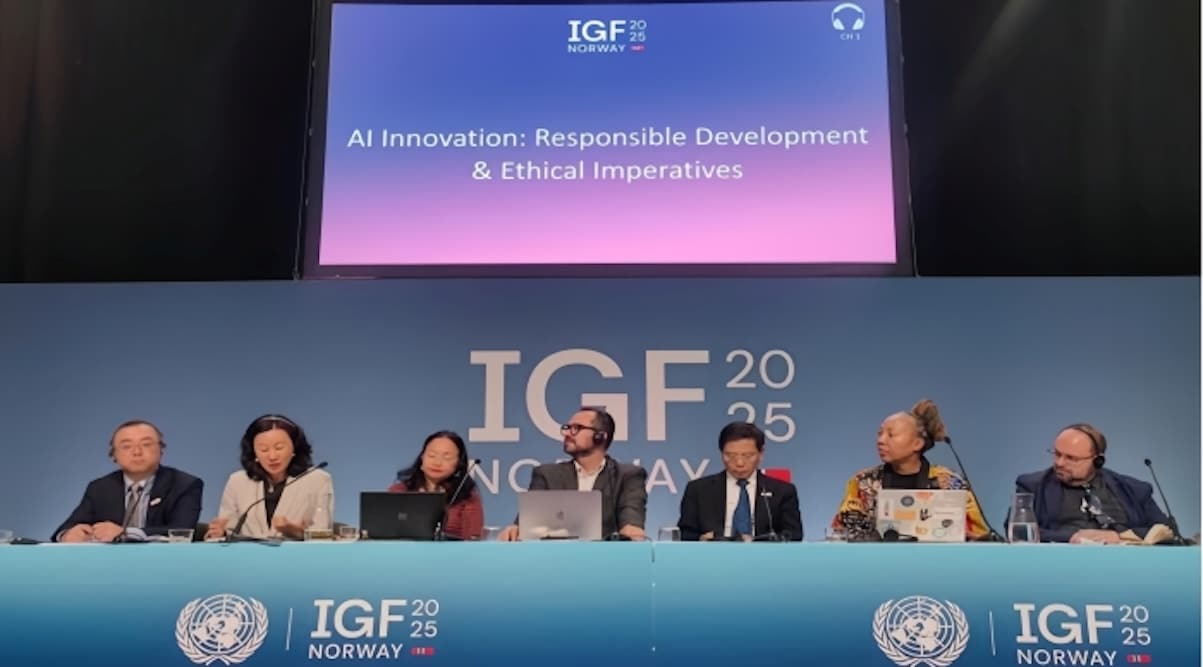The 20th Internet Governance Forum (IGF) brought together over 10,000 participants to discuss the future of digital society under the theme “Building Digital Governance Together.”
From June 23 to 27, 2025, the Norwegian city of Lillestrøm hosted the 20th Internet Governance Forum (IGF 2025), a pivotal event that convened more than 10,000 representatives from governments, international organizations, civil society, the private sector, technical communities, and academia to address key challenges in the global digital ecosystem.
With over 250 sessions—including workshops, open forums, and brief presentations—the event tackled important topics such as artificial intelligence, cybersecurity, digital inclusion, online human rights, and sustainability, in the context of the WSIS+20 review (World Summit on the Information Society).
Prominent figures who participated included António Guterres, the UN Secretary-General; Norwegian Prime Minister Jonas Gahr Støre; and ITU Secretary-General Doreen Bogdan-Martin. Additionally, Li Junhua, UN Under-Secretary-General; Dharambeer Gokhool, President of Mauritius; and Norwegian Minister of Digitalization and Public Governance Karianne Tung attended in person.
China’s CNNIC: An Active Voice in International Digital Dialogue
The China Internet Network Information Center (CNNIC) took an especially active role in this IGF edition, reaffirming its position as a key representative of China’s approach to digital governance.
During the workshop “AI Innovation: Responsible Development and Ethical Demands,” Zhang Xiao, CNNIC Deputy Director and member of the Multi-Stakeholder Advisory Group (MAG), provided a clear perspective on the ethical and regulatory challenges posed by artificial intelligence. Her contributions centered on three main points:
- The Need for Responsible Governance: Zhang advocated for establishing a balanced framework that promotes AI development while ensuring proper regulation.
- Link between AI and Internet Governance: She emphasized that AI’s evolution should be integrated into existing digital governance structures, learning from the experience gained in developing open standards for the Internet.
- Call for Interoperable International Standards: She called for a common regulatory framework to facilitate more collaborative, inclusive, and beneficial global governance.
Strategic Role in the IGF Framework
As a member of the Multi-stakeholder Advisory Group (MAG) appointed by the UN Secretary-General, Zhang Xiao actively contributed to the forum’s strategic design, from proposal selection to speaker nominations. She was also involved in intersessional groups such as the AI Policy Network (PNAI) and the IGF Strategy Group.
During MAG sessions held during the event, priority topics such as the UN-led Global Digital Pact and issues emerging from the WSIS+20 review—marking two decades of digital governance evolution—were discussed.
China Advocates for Cooperation and Sustainability
CNNIC’s participation in IGF 2025 underscores China’s commitment to engaging actively in multilateral Internet governance, aiming for an open, secure, reliable, inclusive, and sustainable digital environment.
For years, CNNIC has promoted multilateral dialogue by contributing proposals and sharing concrete experiences in the international arena. The organization describes its work as “serving as a bridge between China and the world” on Internet and emerging technologies.
A Key Forum Under the UN Umbrella
Established in 2006 under the UN mandate, the IGF is the primary global space for digital policy debate, based on a multi-stakeholder model. The MAG, composed of experts from all continents, advises on the forum’s content.
This edition’s MAG included former members and representatives from the UN Internet Governance Forum (WGIG), aiming to provide a strong outlook on current and future challenges of the global digital ecosystem.
With its strategic involvement in IGF 2025, CNNIC reinforces China’s role on the international stage of digital governance, advocating for responsible and shared technological transformation.
via: cnnic.com.cn

